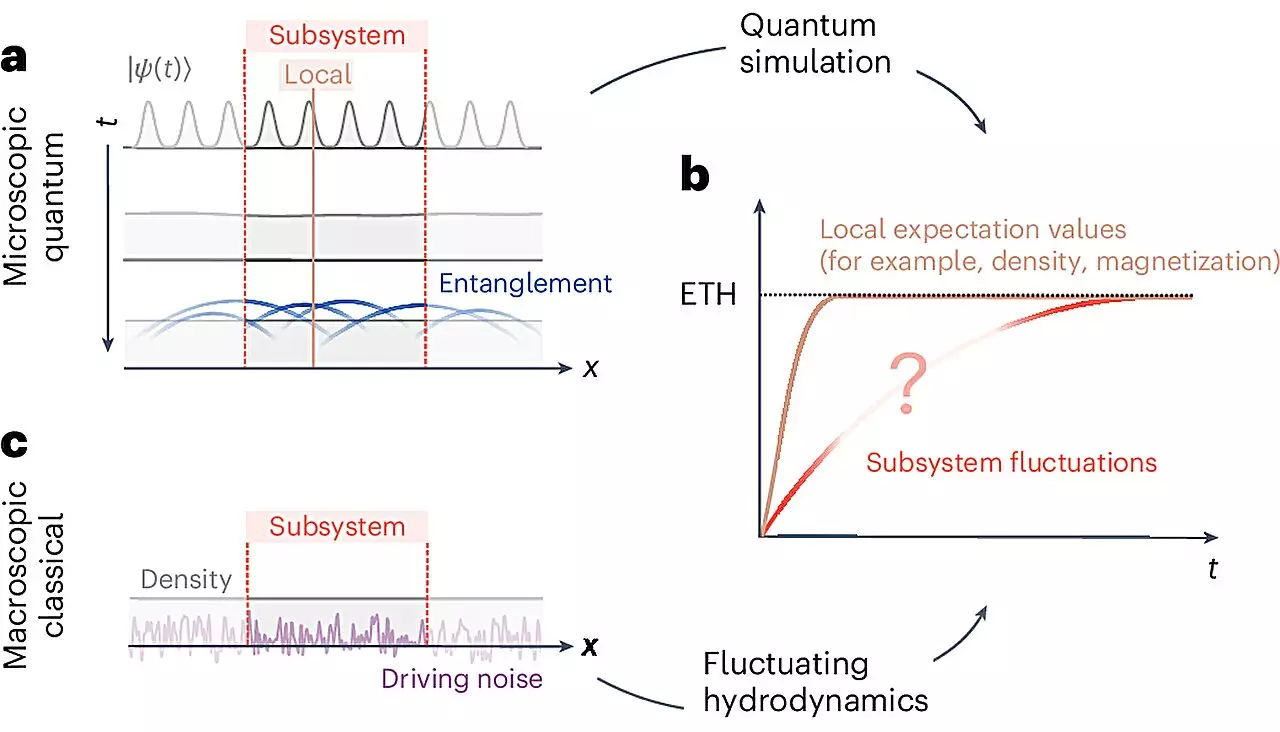The world of quantum physics has long been known for its complexity, unpredictability, and chaos. However, recent research conducted by Professor Monika Aidelsburger and Professor Immanuel Bloch from the LMU Faculty of Physics challenges this notion. Their study, published in the journal Nature Physics, delves into the realm of quantum many-body systems and suggests that even in the midst of chaos, simplicity can be found. By investigating the behavior of interacting small particles, the research team has discovered that these systems can be macroscopically described through simple diffusion equations with random noise.
In the study, Julian Wienand, a doctoral candidate in Immanuel Bloch’s research team and the lead author of the research, introduces the concept of fluctuating hydrodynamics (FHD). He explains that just as the flow behavior of water can be described without delving into the physics of water molecules through hydrodynamics, the erratic movements of small particles in water, known as Brownian motion, can be characterized as white noise within FHD. This theory suggests that despite the complex and chaotic nature of quantum systems at the microscopic level, their behavior may be determined by a single quantity: the diffusion constant.
The exploration of chaotic quantum systems presents a unique challenge due to the fundamental differences in the laws of physics that govern these systems compared to classical particles. Quantum interactions are characterized by phenomena such as uncertainty and entanglement, which defy everyday intuition. However, the FHD theory holds promise in simplifying the description of chaotic quantum systems. By studying the behavior of chaotic many-body quantum systems under the microscope, the research team has found that FHD can both qualitatively and quantitatively describe the system’s dynamics.
The findings of this research shed light on the potential for chaotic quantum systems to be described macroscopically through a diffusion process, akin to Brownian motion. Despite the intricate interactions at the microscopic level, the simplicity of FHD offers a new perspective on the behavior of quantum systems. This realization not only simplifies the understanding of quantum chaos but also paves the way for further exploration into the world of quantum physics.
The study conducted by Professor Monika Aidelsburger, Professor Immanuel Bloch, and their research team opens up exciting possibilities for the future of quantum physics. The concept of fluctuating hydrodynamics provides a fresh perspective on the behavior of chaotic quantum systems, highlighting the simplicity that can be found within the realm of chaos. As research in this field continues to evolve, new insights and discoveries are bound to reshape our understanding of the quantum world.


Leave a Reply